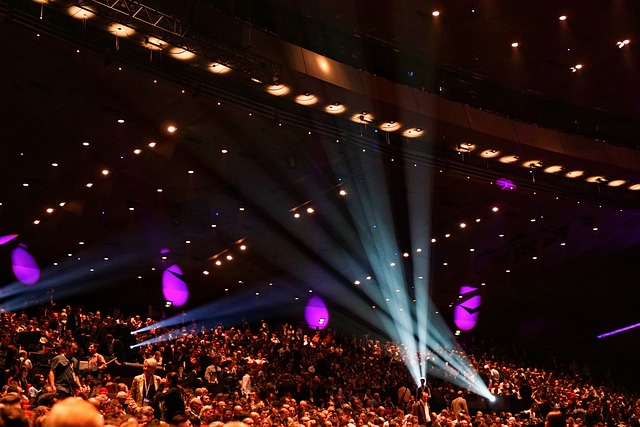Successful event planning for local businesses requires understanding and catering to community needs and preferences. By engaging with residents, analyzing demographics, and integrating local interests into event themes, organizers foster a sense of belonging, increase participation rates, and strengthen community bonds. This approach leaves a positive impact on the local landscape, benefiting both businesses and residents equally, and serves as a catalyst for building vibrant communities that celebrate local heritage.
Local events play a pivotal role in fostering community engagement and boosting local business success. This article delves into the art of coordinating events tailored to your community’s unique needs and interests. We explore strategic planning, from understanding demographic dynamics and building key relationships to developing comprehensive checklists and leveraging technology for impact measurement. Discover how effective event coordination can revolutionize local business outreach and create lasting connections.
- Understanding Your Local Community: Tailoring Events for Success
- – Researching and engaging with the local demographic
- – Identifying unique community needs and interests
Understanding Your Local Community: Tailoring Events for Success

Understanding your local community is a cornerstone in event planning for local businesses. By engaging with residents, business owners, and community leaders, organizers gain valuable insights into the area’s unique culture, preferences, and needs. This knowledge allows for the creation of events that resonate deeply with attendees, fostering a sense of belonging and participation.
Tailoring events to the specific dynamics of your locality enhances their success in numerous ways. It encourages higher attendance rates as people are more inclined to participate in activities that align with their interests and values. Moreover, it strengthens community bonds by providing a shared experience, contributing to a vibrant local scene that benefits businesses and residents alike through increased engagement and support for one another.
– Researching and engaging with the local demographic

Understanding the local demographic is a cornerstone of successful event planning for businesses in the area. By conducting thorough research, organizers can tailor their events to resonate with attendees who are most likely to participate and benefit from what’s being offered. This involves analyzing population statistics, age groups, cultural preferences, and community interests. For instance, a family-focused event would require different strategies than one aimed at young professionals.
Engaging directly with the local community is another vital step. Organizing events that align with existing cultural celebrations or addressing specific needs within the demographic can foster a sense of belonging and higher participation rates. Event planners can achieve this through surveys, focus groups, or partnerships with local organizations. This proactive approach ensures events are not just successful but also leave a positive impact on the community, fostering goodwill towards local businesses.
– Identifying unique community needs and interests

In the realm of event planning for local businesses, understanding the unique community needs and interests is paramount to success. It involves delving into the specific dynamics and cultural fabric of the area to create events that resonate deeply with attendees. By engaging in thorough research, organizers can uncover hidden gems—be they niche hobbies, diverse culinary scenes, or environmental concerns—and incorporate them into event themes. This tailored approach fosters a sense of belonging among participants, ensuring higher engagement and satisfaction.
For instance, an event planner targeting a small coastal town might organize a community seafood festival, highlighting local fishing traditions while showcasing the region’s fresh produce. Such events not only celebrate the area’s heritage but also attract visitors, boosting local businesses. Event Planning for Local Businesses thus becomes a powerful tool to build a vibrant and cohesive community, strengthening the bond between organizers, participants, and the town’s unique identity.
Effective event planning for local businesses hinges on a deep understanding of one’s community. By researching and engaging with the local demographic, as well as identifying unique community needs and interests, organizers can create events that resonate deeply and achieve successful outcomes. This tailored approach ensures that local events not only thrive but also foster a stronger sense of connection within the community.
